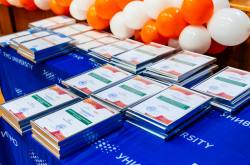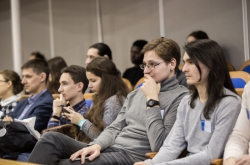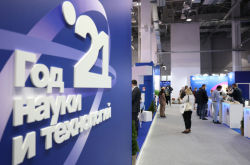Karina Ianyshevskaia, 11th grade student, Tomsk, Digital Production section
I presented my project called “W.E.L.L. – Water Earth Light Laboratory: a Robot for Topsoil Analysis”. I’m interested in creating an autonomous device that will be able to analyze soil without human help. To be honest, I was very nervous before my presentation. My mic didn’t work at first, so I had to start from the top several times. I think it would be easier to present my paper in real life, and yet I’m glad that the event took place despite the quarantine. In the future, I’d like to work in science. I want to continue studying machine vision and autonomous drones at a university.
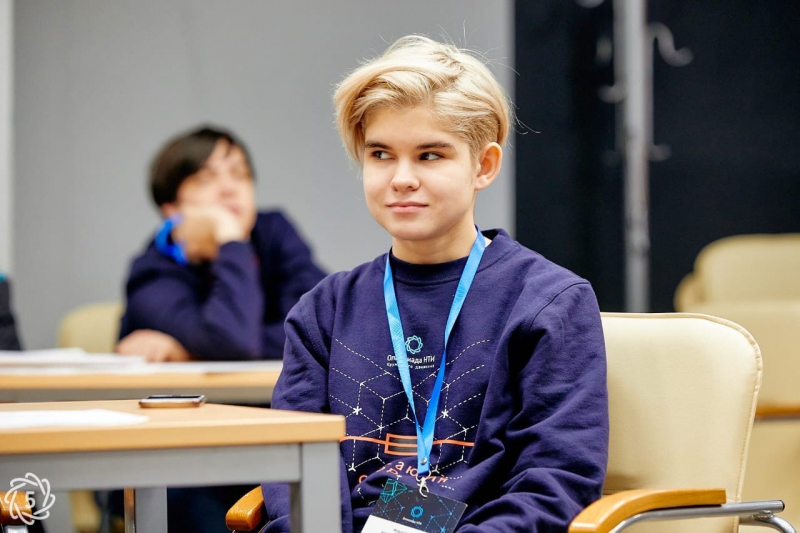
Vera Bulavinova and Anastasiia Untilova, 10th grade students, St. Petersburg, Ecology and Sustainability section
We presented a paper called “Studying the Structure of Benthic Littoral Communities of the Yarnyshnaya and Dalnezelenetskaya Bays of the Barents Sea”. We both have been into biology for a long time, and fieldwork is attractive in its own way. So, when we found out that our school arranged an expedition to the Barents Sea, we knew we should go.
We picked this topic because it’s fascinating to aim high, and then reach your goal. For example, we have analyzed 58 samples in which the number of representatives of a single species could reach up to 800. Then we processed our data, which was a big and very interesting project, too. We gained invaluable experience, visited places where very people have been, and saw the beauty of tundra. We liked how the congress was arranged, even though it was hard to present without seeing the reaction of the audience.
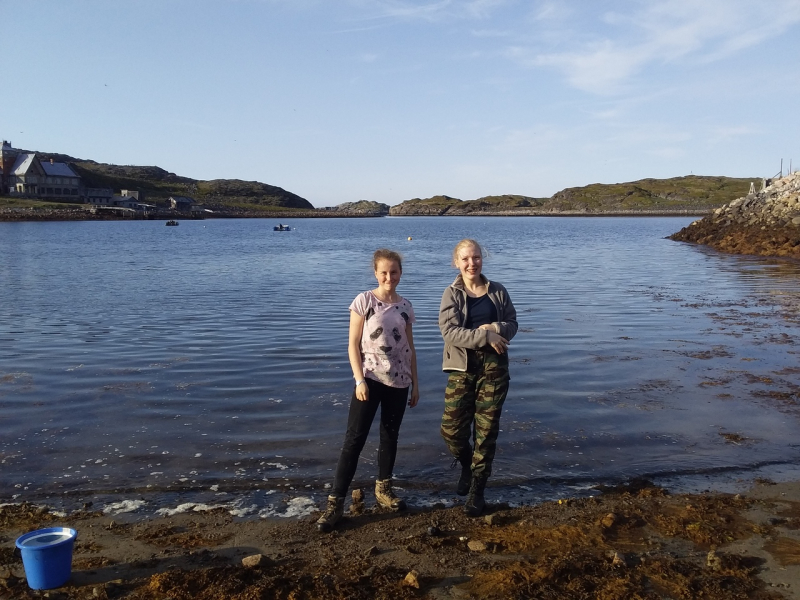
Nikolai Zuev, 11th grade student, St. Petersburg, Ecology and Sustainability section
I’m studying at BioTop, a biology studies branch of the Laboratory for Continuous Mathematical Education. For two years straight our school arranged summer expeditions to the Barents Sea. I participated in them and collected material for my research. At the congress, I presented results of studying polymorphism in the populations of gastropod mollusk Testudinalia tesselata in the littoral zone of the Barents Sea. It was convenient for me to present online – however, it would be even better in real life. I’m glad that ITMO University organized an easy-to-use and well-functioning online system for presentations so that everyone would be able to share their research. Unfortunately, I’ll soon graduate from school and I won’t be able to join further expedicitions to the Barents Sea, but I’m going to continue studying other important topics.
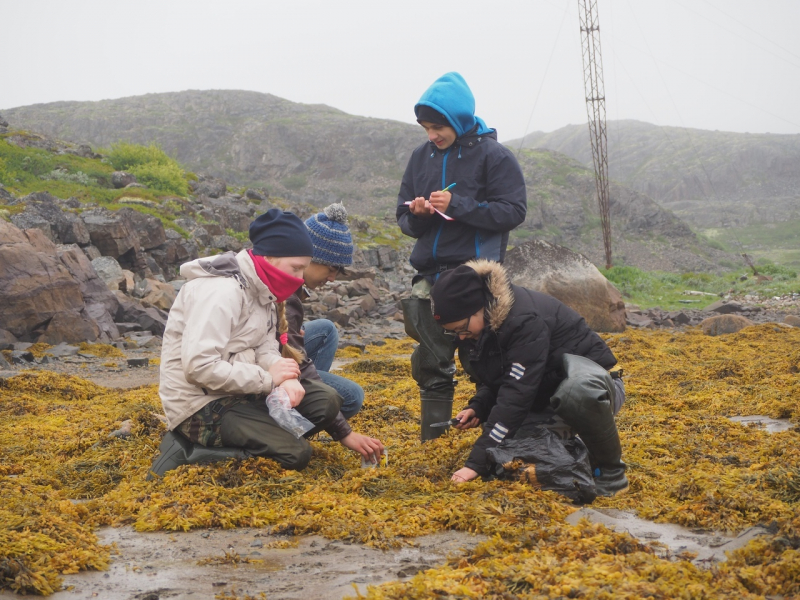
Liliia Zhuravleva, 10th grade student, Moscow, Ecology and Sustainability section
At the congress, I presented my research called “Comparative Efficiency of Hydrocarbon Biodegraders: Ecosystem Health Factors”. This timely topic that doesn’t require a lot of equipment for its first stage is found on the intersection of biology and ecology. It’s interesting because the complex application of hydrocarbon biodegraders hasn’t been researched before. It would be interesting to scale up the project and study delayed changes in the bodies of model mammals, as well as the molecular nature of the effects of degraders and the products of their interaction with hydrocarbons or environmental components.
Further I want to work in medicine studies, so this research is important to me. Without a doubt, I’m planning to continue my scientific activities. Medicine should be developed in order to improve our lives by making them longer and more fulfilled. This is a great reason to work hard.
The youngest participant was Diana Zalozhnykh, a second grade student from Zarechny.
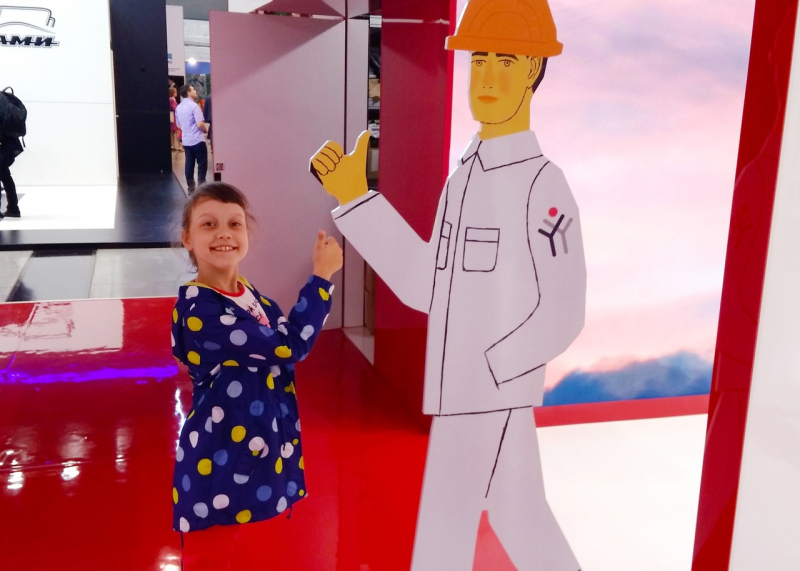
“I presented a paper called “Dangerous Toys”. I found this topic interesting because there are many cheap toys that are rip-offs of expensive toys of better quality. Even though the government is trying to control it, the amount of stores that sell this kind of items grows. Some popular store chains also sell contraband. This makes parents reluctant to buy toys, as they aren’t sure about their quality and safety. I wanted to research if that’s how it actually is. I enjoyed presenting online; it was interesting. As it turns out, you can bring participants together from all over the world. I think it’s a great opportunity for school students who live in the province to present their research,” she says.
In the Programming in Telecommunications section, diplomas were awarded to Georgii Kadantsev and Alexandr Sinitsyn from St. Petersburg for the “Persistent Homology and Analysis of Histological Data” presentation, as well as to Alexandr Popov from Perm for “Developing Your Own Graphic Editor Using Python” paper.
Among other participants were: Savelii Dolgopolenko from Krasnodar (“Hard- and Software System Based on OpenCV Machine Vision Technology for Students and Staff Access Control at the Malaya Academy, Krasnodar”), Artem Zaborshchikov and Iuliia Mikheeva from Tomsk (“User’s Eye Tracking”), Ivan Sobolev and Elizaveta Firsova from Yekaterinburg (“Implementation of the RABat Web Application”), and Stanislav Shchetinin from Volgograd (“Smart alarm clock ps-wuq (physiology of sleep - wake up quickly)”). They received high marks for great expertise in mathematics and programming
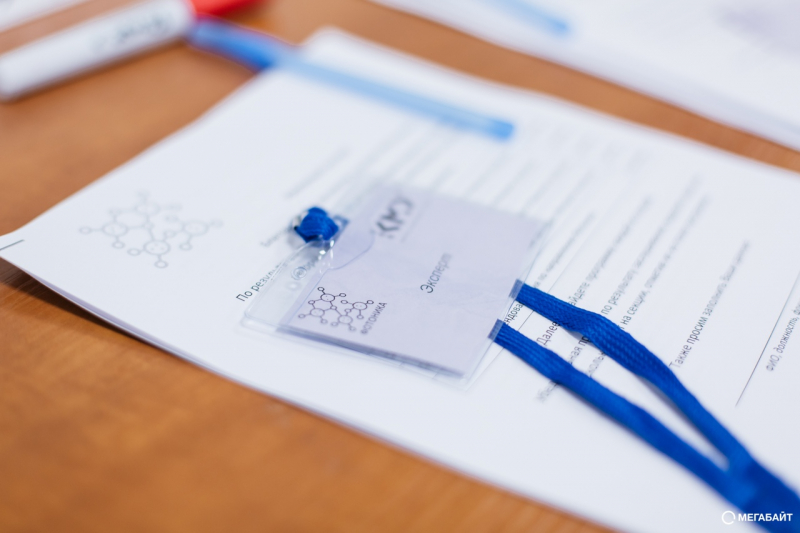
Jury of Congress’ school sections notes the high level of research, and the ability of authors to present their research results.
“Among the participants there were students of grades 6 to 11 from St. Petersburg, Krasnodar, Tomsk, Kirov, Perm, Yekaterinburg and Volgograd. Mainly, the presentations were related to design and creation of software systems using modern technologies, such as mathematical and computer modeling, machine learning, Internet of things, data analysis, web programming and so on,” comments Tatyana Zudilova, PhD, associate professor of the Faculty of Telecommunication Systems and Technologies, chairman of the jury at the Programming in Telecommunications section for school students. “The speakers demonstrated great results, communication skills, ready-made solutions (prototypes), and the desire to improve their ideas and to develop in IT.”
Organizers would like to note that the experimental online format proved to be quite successful, so, starting next year, distant participation in the congress will become an option. Thanks to this, even school students who aren’t able to come to St. Petersburg will be able to present their research.



